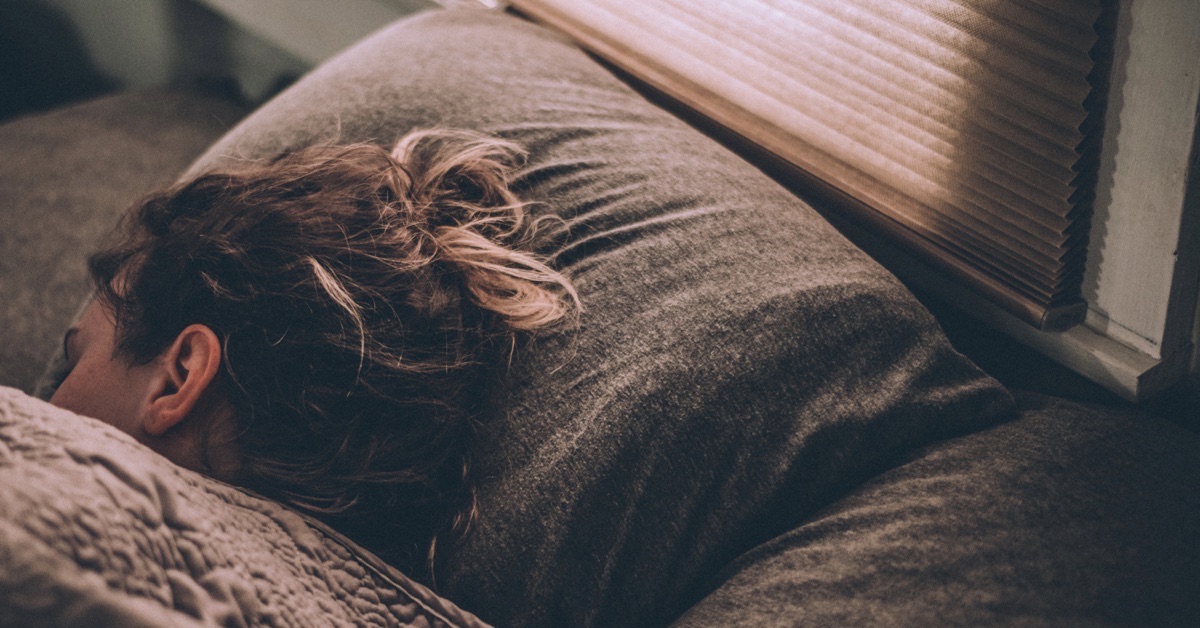Fatigue
Fatigue is basically a normal body condition that signals the need for rest. However, persistent fatigue can also be a sign of a health disorder, a lack of certain nutrients or illness. Frequent accompanying symptoms are passivity, listlessness and decreasing physical/mental performance.
But it is different when someone is tired all the time, feeling exhausted and perhaps even tends to nod off during the day. In addition, there is often a lack of drive, listlessness and reduced physical and/or mental performance. All these are signs that something is wrong.
Fatigue & sleep
Lack of sleep is very often the reason for tiredness. But how much sleep does a person actually need? This varies greatly from person to person – some people are born heavy sleepers, others generally manage with less sleep.
What If You Can Quit the Anxiety and Live the Life You Want?
Age also plays a role: 40-year-olds usually sleep about seven hours at night. The need for sleep generally decreases with increasing age. Thus, healthy 80-year-olds generally sleep around six hours at night. But as mentioned above – these are only guidelines. Every person has his or her own personal need for sleep.
Fatigue causes
Fatigue can have various causes. It does not necessarily have to be a sign of illness, but can also be caused by an unhealthy lifestyle, for example. Below you will find a list of the most important causes of fatigue.
General causes
- Chronic sleep deficiency: going to bed too late, getting up early, living against the natural sleep-wake rhythm.
- Lack of exercise: Those who are permanently under-exercising will tire more quickly.
- Fat, high-calorie food: After a rich meal, there is increased blood flow to the digestive system.
- Overweight
- Diets or underweight: If the body is not supplied with enough nutrients, minerals and vitamins, deficiency symptoms can occur, which in turn can trigger fatigue.
- Lack of fluids: If you drink too little, the blood becomes thick and can only circulate slowly. This also delays the supply of oxygen to the brain. Therefore drink enough. For adults, two litres of fluid per day (at moderate temperatures) are recommended.
- Stress at work or in everyday life, burnout and persistent under challenge (boredom, bore out) make you tired.
- Poorly ventilated rooms and dry air.
- Toxic and harmful substances in the air (working and living spaces)

Diseases as a cause of fatigue
Furthermore, various diseases can be accompanied by fatigue. The most important examples are:
- Infections with viruses or bacteria: The immune system runs at full speed to ward off the pathogens. Persistent fatigue is often the result. This happens, for example, with influenza, colds, pneumonia and glandular fever. Under certain circumstances, the tiredness can continue for a long time after the infection has subsided (for example, after flu);
- Sleep apnoea: The nocturnal respiratory arrests interrupt sleep again and again and thus prevent a restful night’s sleep. This is why those affected are often extremely tired during the day;
- Anaemia: Tiredness, reduced performance, dizziness and headaches are common symptoms of anaemia and the resulting undersupply of oxygen to the body. Possible causes of anaemia include a lack of iron, vitamin B12 or folic acid, bleeding, infections, autoimmune or genetic diseases;
- Cardiac arrhythmia;
- Metabolic diseases such as hypothyroidism or diabetes mellitus;
- Other chronic physical diseases such as cardiac insufficiency (heart failure), multiple sclerosis, rheumatoid arthritis, sarcoidosis or chronic kidney weakness (chronic renal insufficiency);
- Mental illnesses such as depression and anxiety disorders can also be associated with fatigue. If symptoms such as fatigue and depression always occur during the winter months, this may be a case of winter depression (Seasonal Depression, SAD);
- Low blood pressure (hypotension);
- Migraine.
How you can help yourself?
You can do a lot yourself to keep fit and efficient and to prevent fatigue attacks. But before you do so, make sure that the fatigue is not caused by a serious illness.
All in all, fatigue can be treated – but usually only by changing one’s lifestyle and daily routine. Moreover, the successes do not appear overnight, but gradually. Give yourself the necessary time. Get in touch to see how I can help you to reduce your tiredness. Please enter your details here, explain to me your worries and I will help you to find the solution that best suits your case. I will contact you back as soon as possible.
You’re in good hands

Get in touch to see how I can help you to reduce your anxiety.
Please enter your details here, explain to me your worries and I will help you to find the solution that best suits your case.
I will contact you back as soon as possible.
